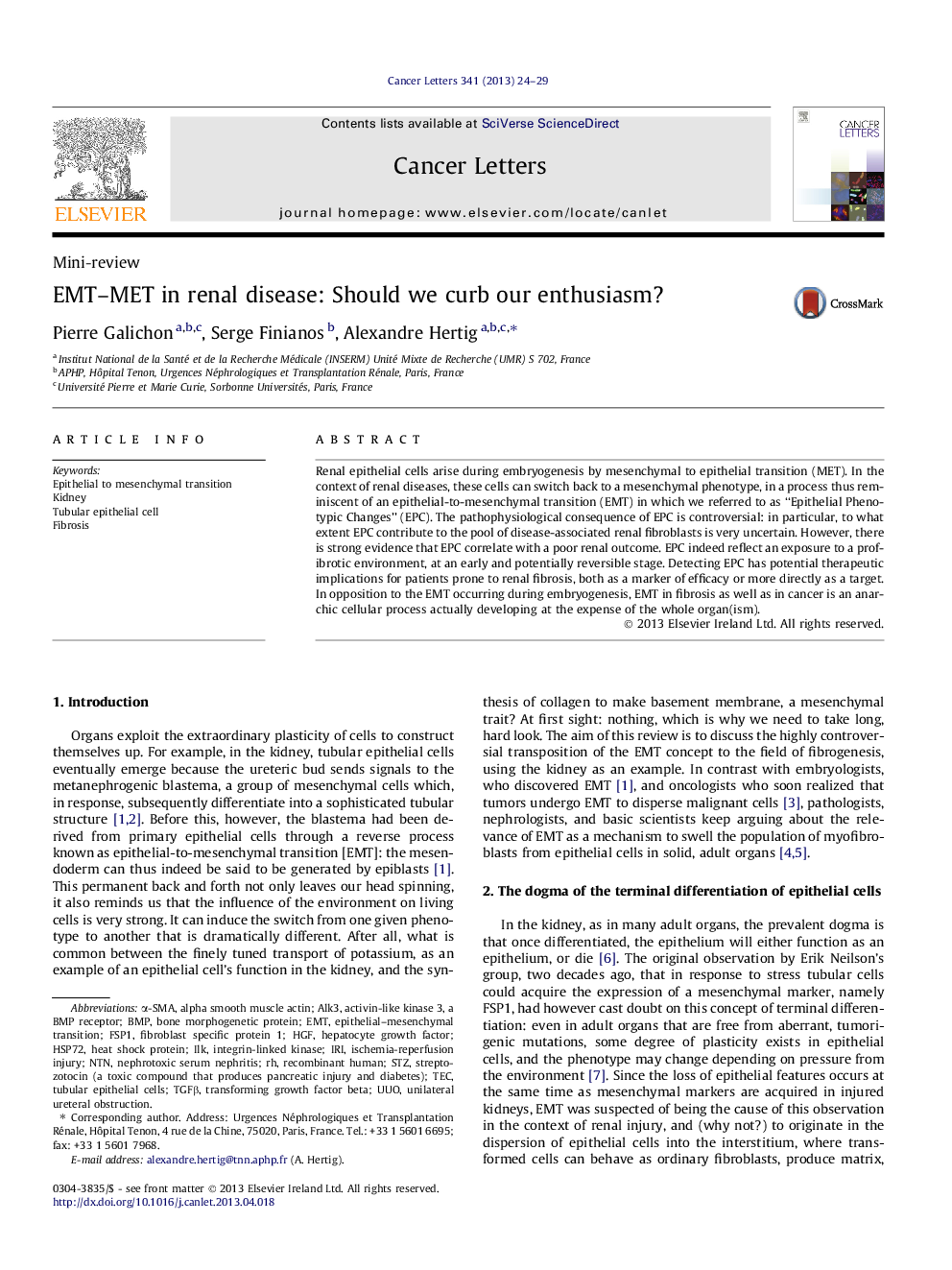| Article ID | Journal | Published Year | Pages | File Type |
|---|---|---|---|---|
| 2112727 | Cancer Letters | 2013 | 6 Pages |
Renal epithelial cells arise during embryogenesis by mesenchymal to epithelial transition (MET). In the context of renal diseases, these cells can switch back to a mesenchymal phenotype, in a process thus reminiscent of an epithelial-to-mesenchymal transition (EMT) in which we referred to as “Epithelial Phenotypic Changes” (EPC). The pathophysiological consequence of EPC is controversial: in particular, to what extent EPC contribute to the pool of disease-associated renal fibroblasts is very uncertain. However, there is strong evidence that EPC correlate with a poor renal outcome. EPC indeed reflect an exposure to a profibrotic environment, at an early and potentially reversible stage. Detecting EPC has potential therapeutic implications for patients prone to renal fibrosis, both as a marker of efficacy or more directly as a target. In opposition to the EMT occurring during embryogenesis, EMT in fibrosis as well as in cancer is an anarchic cellular process actually developing at the expense of the whole organ(ism).
